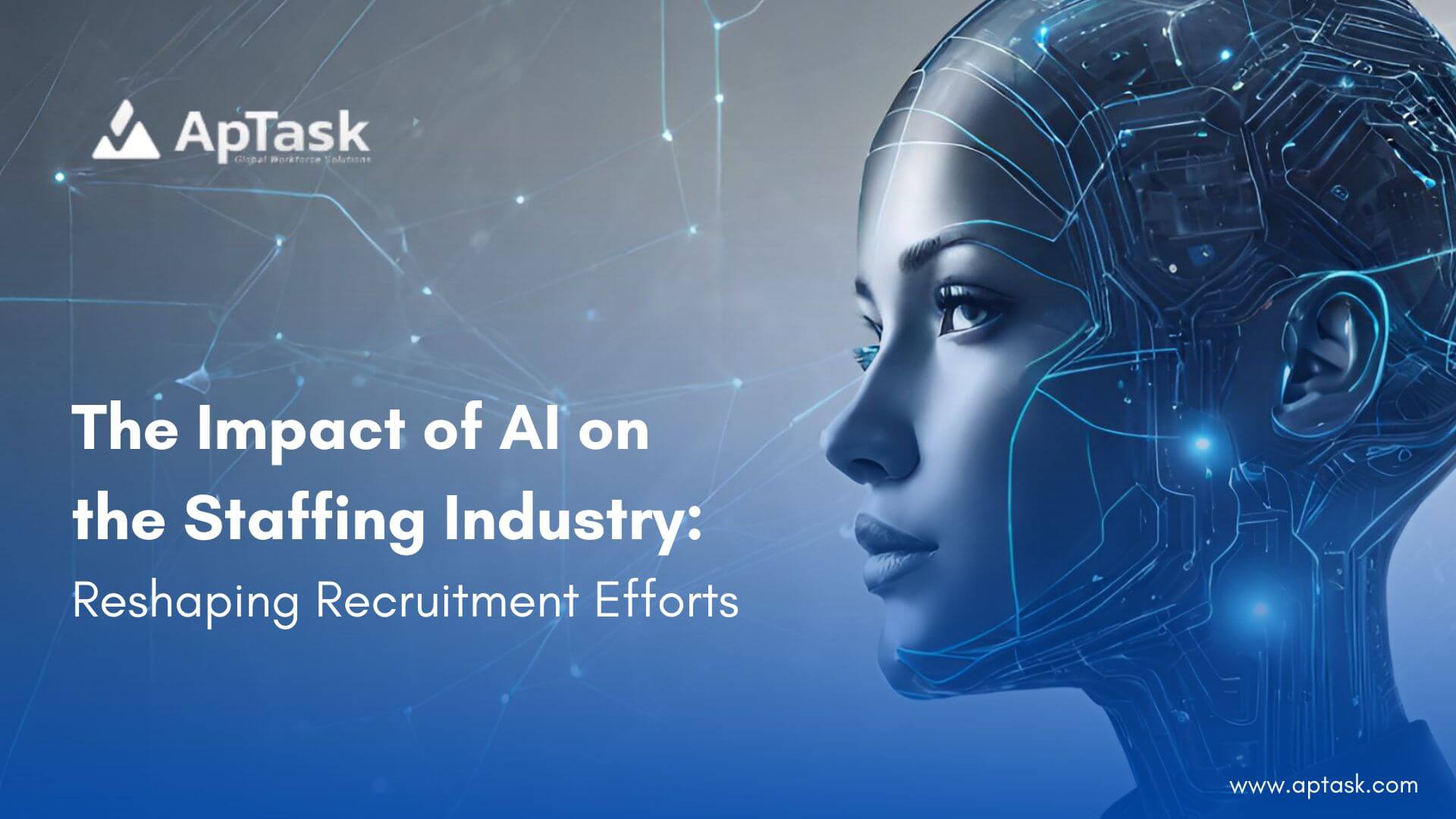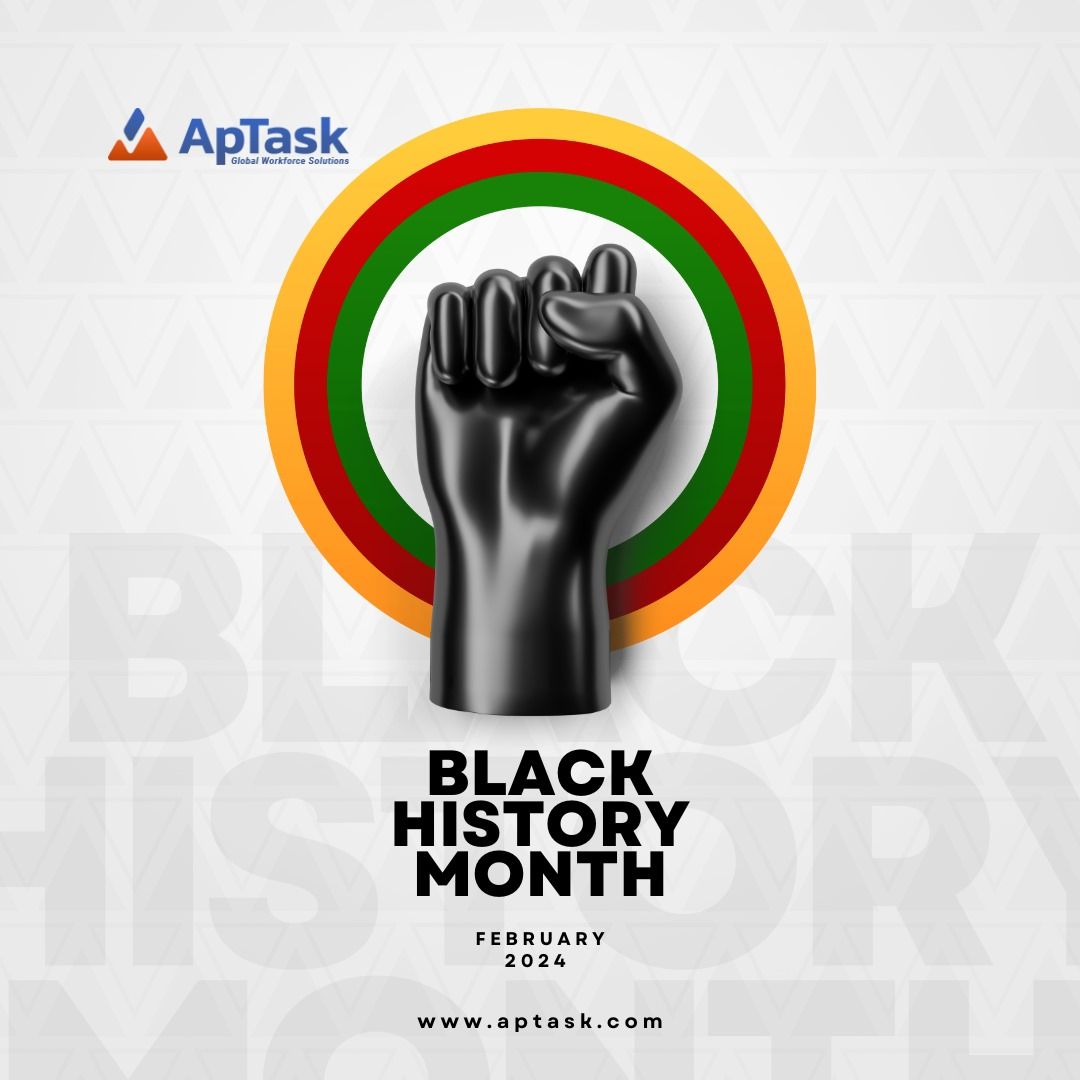In our previous blog published in May 2023, we highlighted the growing acceptance of Artificial Intelligence (AI) among companies. As organizations continue to learn and grasp the advantages of AI, its widespread adoption is becoming increasingly evident.
Today, AI is everywhere. AI this, AI that and our staffing industry is no different. AI is revolutionizing the staffing industry and reshaping our recruitment efforts. Explore the benefits and challenges of AI in streamlining candidate selection, improving efficiency, and enhancing the overall recruitment process.
Introduction:
In recent years, Artificial Intelligence (AI) has emerged as a game-changer for various industries, and the staffing industry is no exception. AI technologies are revolutionizing recruitment efforts, transforming the way candidates are sourced, screened, and matched with job opportunities. In this article, we will delve into the influence of AI on the staffing industry and explore its impact on reshaping the recruiting landscape.
Streamlining Candidate Selection:
One of the key benefits of AI in the staffing industry is its ability to streamline candidate selection. AI-powered systems can analyze vast amounts of data from resumes, job applications, and online profiles, allowing recruiters to identify the most qualified candidates efficiently. By automating the initial screening process, AI saves time and resources, enabling recruiters to focus on more strategic tasks.
Improved Efficiency:
AI technology enhances the efficiency of the recruitment process by eliminating manual and repetitive tasks. Chatbots, for example, can engage with candidates, answer frequently asked questions, and schedule interviews. This not only speeds up the process but also provides a seamless candidate experience. Additionally, AI-powered applicant tracking systems can manage candidate data, track their progress, and generate insightful reports for recruiters, facilitating better decision-making.
Enhanced Talent Matching:
AI algorithms are capable of analyzing and understanding complex candidate profiles, skills, and job requirements. By leveraging machine learning, AI can identify patterns and correlations between candidate attributes and job criteria, resulting in more accurate and efficient talent matching. This technology ensures that candidates are matched with the most suitable job opportunities, increasing the chances of successful placements.
Reducing Bias and Promoting Diversity:
AI in recruitment helps mitigate unconscious bias by focusing solely on candidate qualifications and skills. By removing human bias from the initial screening process, AI ensures a fair and objective evaluation of candidates, promoting diversity and inclusion. This technology opens doors for candidates from all backgrounds, ensuring equal opportunities and fostering a more diverse workforce.
Challenges and Considerations:
While AI brings numerous benefits to the staffing industry, it is essential to acknowledge and address the challenges that come with its implementation. Some considerations include:
- Data Accuracy and Bias: AI systems heavily rely on data, and if the data is biased or inaccurate, it can perpetuate existing biases or make incorrect decisions. Ensuring the quality and diversity of data inputs is crucial to avoid unintended biases in candidate selection.
- Ethical Use of AI: The use of AI in recruitment raises ethical concerns, such as privacy issues and potential discrimination. It is essential to ensure transparency, informed consent, and compliance with data protection regulations to maintain trust and fairness in the recruitment process.
- Human Touch and Personalization: While AI streamlines recruitment, it is vital to maintain a human touch and personalized approach. Building relationships, understanding candidate motivations, and assessing cultural fit are aspects that still require human interaction and judgment.
AI is reshaping the staffing industry, revolutionizing recruitment efforts, and improving the overall efficiency and effectiveness of the process. From streamlining candidate selection and enhancing talent matching to reducing bias and promoting diversity, AI technologies offer significant advantages to staffing agencies and employers. However, it is crucial to address challenges and ensure a balance between automation and personalized human interaction. As AI continues to evolve, the staffing industry must adapt and embrace these advancements to stay competitive in an ever-changing job market.





 Start chatting with Rachel to find your next job!
Start chatting with Rachel to find your next job!